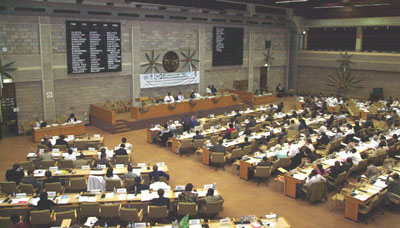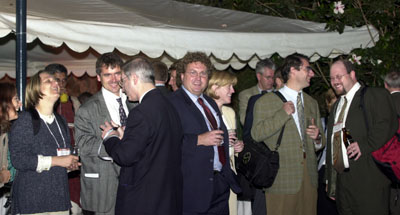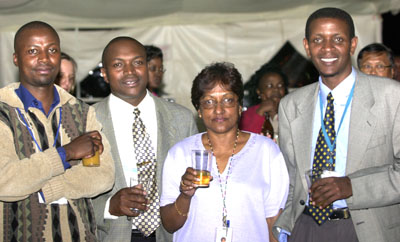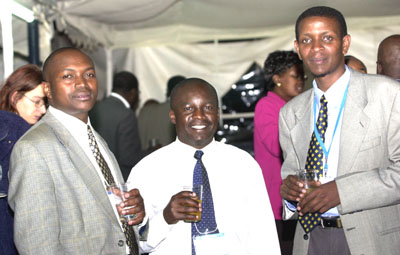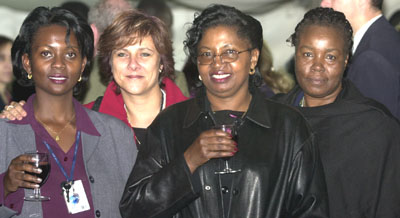|
|
Plenary: FURTHER
DEVELOPMENT OF A SAICM
|
|
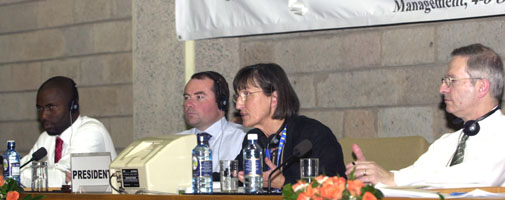
|
|
Above photo L-R: SAICM PrepCom
President Viveka Bohn (center), assisted by UNEP Chemical's Muhammed
Omotola, Matthew Gubb, and John Buccini.
|
|
|
|
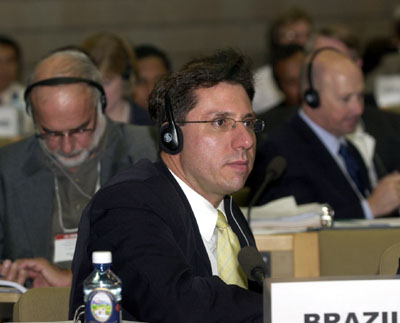
|
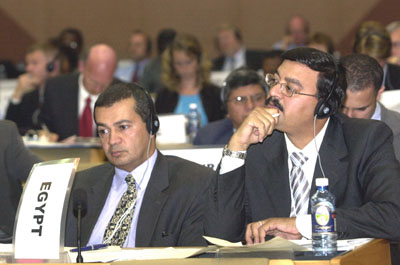
|
|
On capacity building, BRAZIL, stressed the difference between
capacity, resources and development, saying they should be
considered under separate subheadings. Above photo: Marco Cabral (Brazil)
|
EGYPT,
said a separate heading for financial considerations would reflect
the importance of financing. Above photo L-R: Mootaz Khalil
and Tarek Eid El Ruby (Egypt)
|
|
|
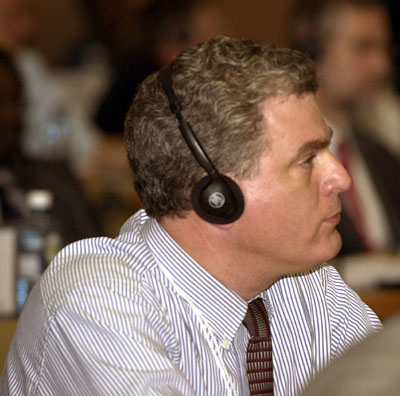
|

|
|
The
US said financial considerations is more acceptable and covers a
wider range of possibilities. Above photo: Robert Ford (US)
|
ZAMBIA
proposed that financial considerations be an independent sixth
heading and not a subheading under the objectives. Above photo: Nesiku
Munyind (Zambia)
|
|
|
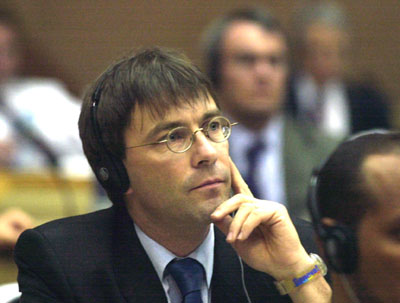
|
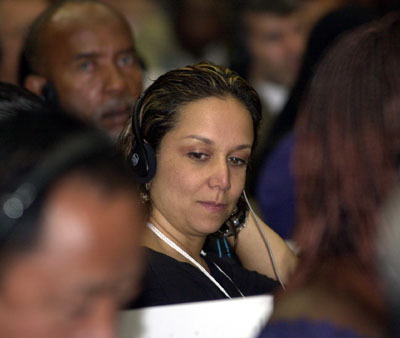
|
|
SWITZERLAND
said ensuring adequate financial resources to implement the goals of
SAICM should also be included under objectives. Above photo: Franz
Xaver Perrez (Switzerland)
|
COLOMBIA
proposed leaving capacity building as a subheading under objectives,
and adding a new heading on financial considerations. Above photo: Adriana
Mendoza (Colombia)
|
|
|
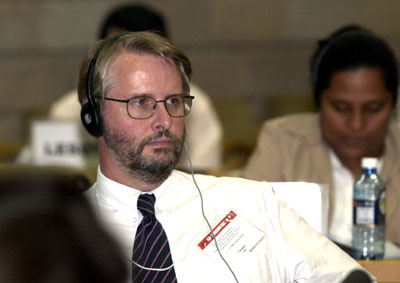
|
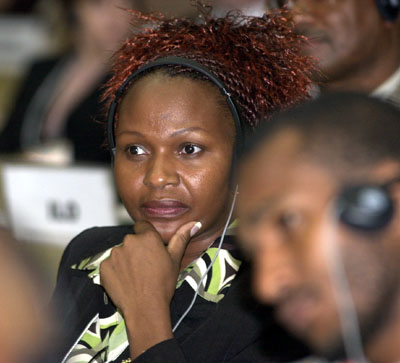
|
|
CANADA
said financial issues relate to implementation, and suggested
discussions on finance continue after concrete actions are discussed.
Above photo: John Mundy (Canada)
|
ZIMBABWE
said the objectives are based on national priority issues. Above
photo: Ndatenda Mondoh (Zimbabwe)
|
|
|
|
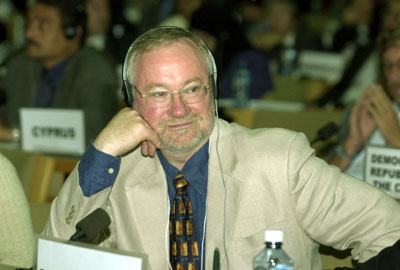
|
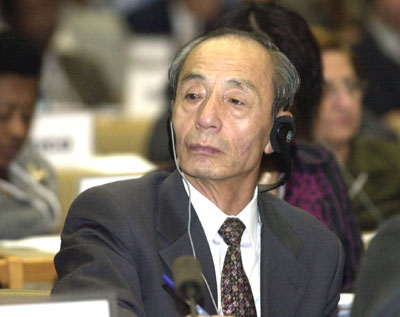
|
|
AUSTRALIA urged moving forward to substantive discussion with a
flexible matrix structure to incorporate arising issues. Above
photo: Mark Hyman (Australia)
|
CHINA suggested including a reference on promoting the goals of
other international agreements on chemicals management in the
objectives. Above photo: Cheng Weixue (China)
|
|
|
|
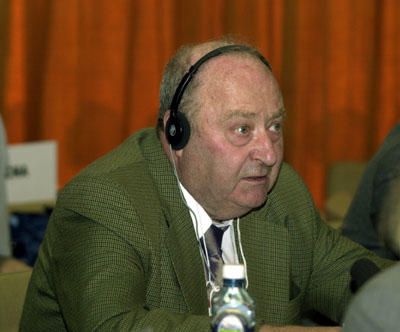
|
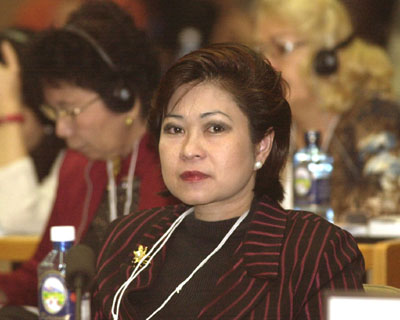
|
|
The RUSSIAN FEDERATION called for a harmonization of definitions of
risk, and drew attention to the lack of accessible databases on the
toxicity of chemicals. Above photo: Boris Kuryandskiy (The
Russian Federation)
|
The
PHILIPPINES said the statement of needs should address national and
regional coordination. Above photo: Desiree Narvaez (The
Philippines)
|
|
|
|
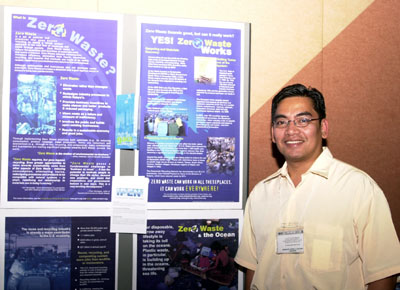
|
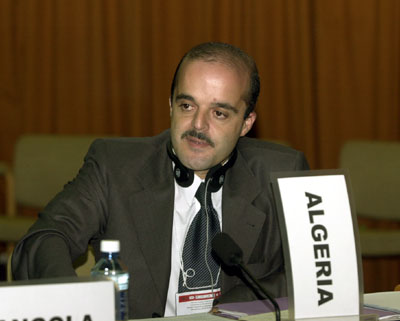
|
IPEN called for: the phasing out of production and use of persistent
or bio-accumulative chemicals, and a cessation of their release; the
substitution of hazardous chemicals, products and processes; and
waste reduction at the source. Above photo: Manny Calonzo (IPEN)
showcasing the "Zero Waste" posters of IPEN.
|
ALGERIA
called for a strategic approach to assist developing countries and
economies in transition to compile updated lists of chemicals, and, inter
alia, maintain
registers. Above photo: Kouri Fateh (Algeria)
|
|
Contact group on concrete
measures:
|
|
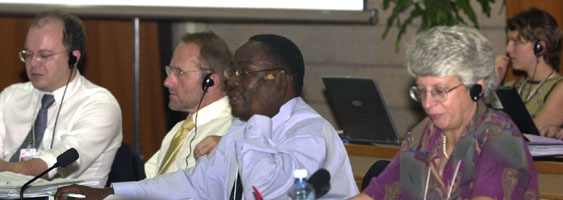
|
|
Above photo L-R: The dais of the
Contact Group on Measures with Craig Boljkovac (UNITAR), Bill
Murray (FAO), Chair Jamidou Katima (Tanzania) and Wanda
Hoskin, Rapporteur (Canada)
|
|
|
|
|
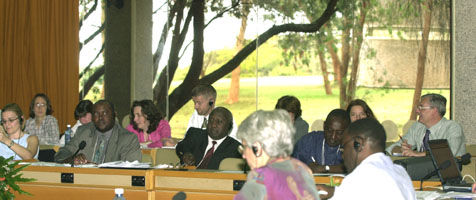
|
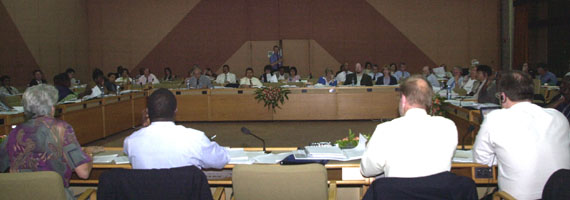
|
|
|
|
DRAFTING GROUP ON SCOPE:
|
|
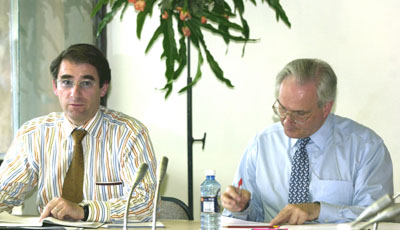
|
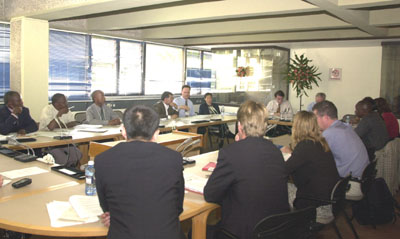
|
|
Left photo: A
drafting group chaired by Jean-Louis Wallace (Canada) (left) met in
the afternoon to discuss the scope of SAICM.
Right photo: View of the drafting group on Scope
|
SIDE
EVENT: Development of Integrated National Programmes for sound
chemical ManAgement
|
|
|
|
|
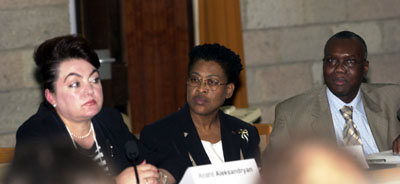
|
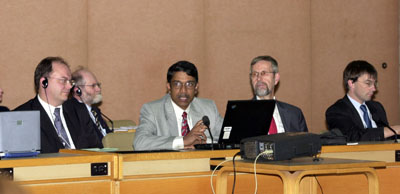
|
|
Participants met in a side event
on the "Development of Integrated National Programmes for Sound
Chemicals Management" and its relevance to the SAICM process,
organized by UNITAR and its international partners. The objective of
the event was to brief participants on the concept of integrated
national programs (INP), and to share the experience gained by
countries participating in pilot projects supported by UNITAR/IOMC,
with financial assistance from the Swiss government. The
countries that presented their experience were Jamaica, Armenia, and
Sri Lanka.
|
ENB SNAPSHOTS: RECEPTION
HOSTED BY SAICM and THE GOVERNMENT OF KENYA
|
|
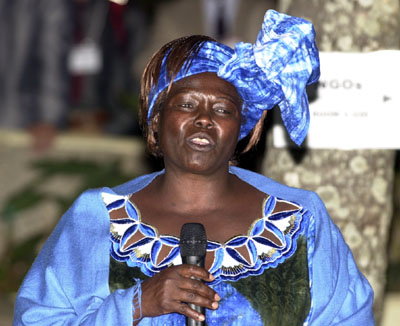
|
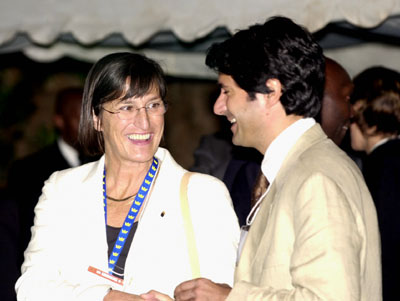
|
|
|

|

|
|
|
|
|
|
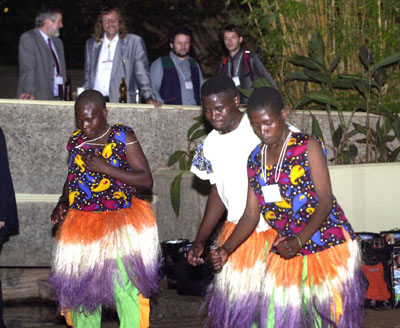
|
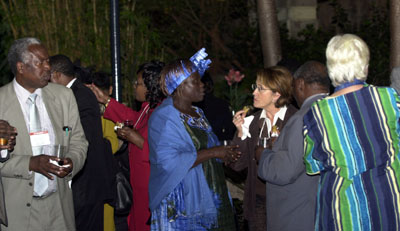
|


